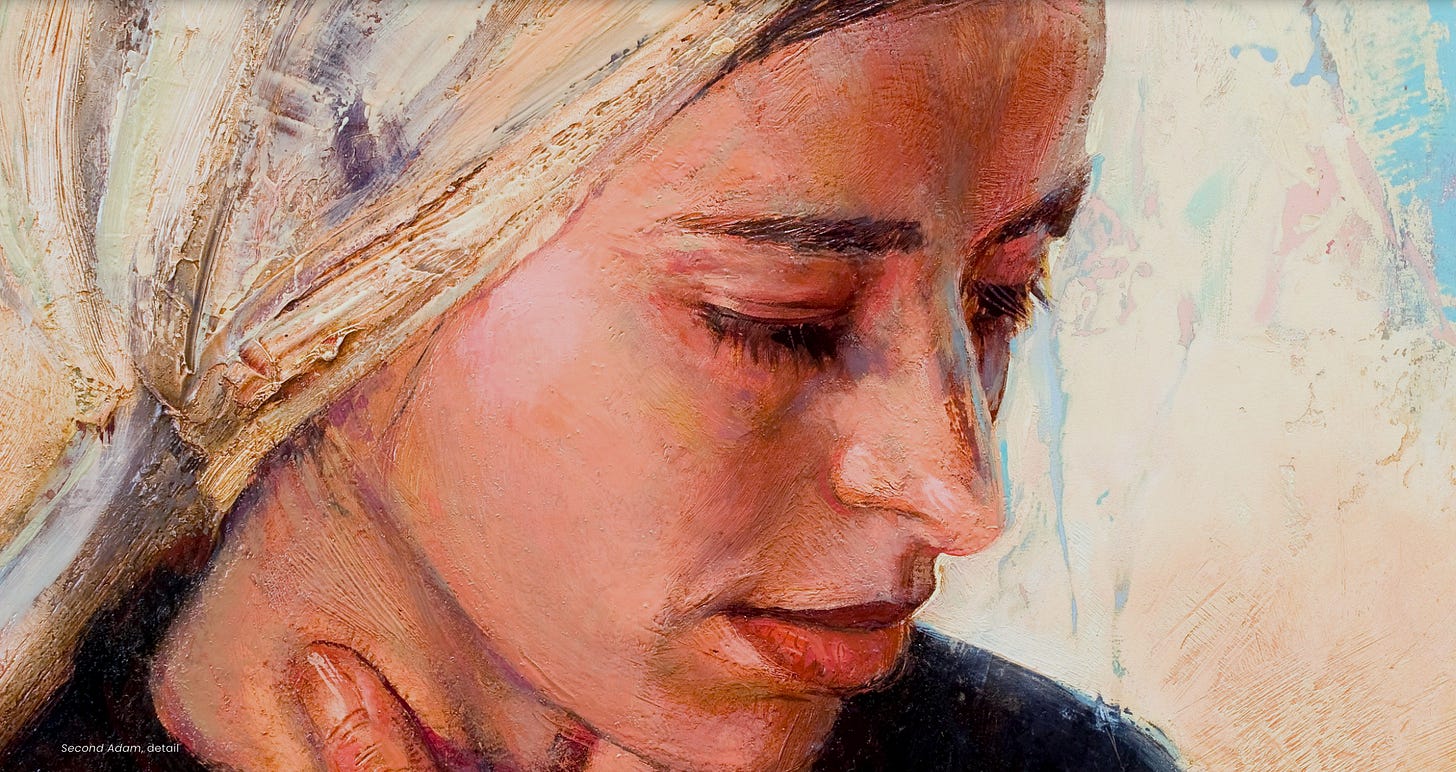Dear friends,
A handmade Advent wreath sits on our dining room table. Simple pine branches with a couple pine cones are wired together around four candles. It’s already looking a little weary. (I’m fairly certain I need to spray some water on it.) Tonight we’ll light the second candle of peace.
If you’re just joining us, we’re spending the first few weeks of the church calendar reading selected passages leading up to Christ’s birth. Traditional Advent themes — hope, peace, joy, love — are included, and you’ll also find themes of waiting, accepting, journeying, and birthing. If you’re a paid subscriber, be sure to tune into the audio recording; I’ll be reading each week’s passage three times through for our lectio divina.
If sacred reading is unfamiliar to you, lectio divina is a prayerful way of reading scripture or other beautiful texts by using four steps.
Lectio: Read or listen to the passage with care. Repeat 2-3 times.
Meditatio: Meditate on the text for a few minutes. Take note of any words or phrases that stick out.
Oratio: Respond to God with prayer.
Contemplatio: Contemplate God’s love for you.
Take as much time as you need with this practice. I’d suggest a ten minute minimum.
This week’s passage from Luke contains the song Mary sings when she visits her cousin, Elizabeth. Often referred to as the Magnificat or the Canticle of Mary, this is a hymn of praise and declaration of God’s “mighty deeds”. Both Elizabeth and Mary were carrying unexpected children. There must have been countless moments of questioning, acceptance, unearthly peace, and hesitation. Together they rejoiced. Mary’s voice in this passage points to her active participation — her full acceptance — within the story unfolding. She sings not only of the miracle growing inside her body, but the continued movement of God from her ancestors’ legacy onward into the future. Her song of divine disruption boldly proclaims God’s good news.
“It’s the gospel before the gospel, a fierce bright shout of triumph thirty weeks before Bethlehem, thirty years before Calvary and Easter. It goes with a swing and a clap and a stamp. It’s all about God, and it’s all about revolution. And it’s all because of Jesus—Jesus who’s only just been conceived, not yet born, but who has made Mary giddy with excitement and hope and triumph. In many cultures today, it’s the women who really know how to celebrate, to sing and dance, with their bodies and voices saying things far deeper than words. That’s how Mary’s song comes across here.”
— N.T. Wright, Luke for Everyone

Mary’s Magnificat: Luke 1:46-56 (The Voice)
Today is the Second Sunday of Advent. Today’s text is from the Gospel of Luke. I’ll read this through three times. Be sure to pause this recording to reflect as needed.
“Mary: My soul lifts up the Lord!
My spirit celebrates God, my Liberator!
For though I’m God’s humble servant,
God has noticed me.
Now and forever,
I will be considered blessed by all generations.
For the Mighty One has done great things for me;
holy is God’s name!
From generation to generation,
God’s lovingkindness endures
for those who revere Him.
God’s arm has accomplished mighty deeds.
The proud in mind and heart,
God has sent away in disarray.
The rulers from their high positions of power,
God has brought down low.
And those who were humble and lowly,
God has elevated with dignity.
The hungry—God has filled with fine food.
The rich—God has dismissed with nothing in their hands.
To Israel, God’s servant,
God has given help,
As promised to our ancestors,
remembering Abraham and his descendants in mercy forever.
Mary stayed with Elizabeth in Judea for the next three months and then returned to her home in Galilee.”
(I also really enjoy the song Canticle of the Turning as it relates to this passage!)
Journal Prompts:
The Magnificat is a song accepting and celebrating God’s everlasting generosity, lovingkindness, and justice. How have these divine acts of care been present in your life?
This is a song sung in the context of Elizabeth and Mary’s kinship, first by blood and then by the bond of divine peace in the midst of confusing circumstances. In your own life, who points you to God’s peace?
Has Mary’s prophetic song been fulfilled? In what ways might we take this song seriously in the way we worship, work, and live alongside others?
Related Resources:
Find last week’s reading here.
Get a free preview of the Advent resources listed in the 2024-2025 Liturgical Calendar Guide in the Library, and a discount code for the whole thing!
It’s not too late to download some Advent breath prayers.
Listen to this episode with a 7-day free trial
Subscribe to This Gentle Light to listen to this post and get 7 days of free access to the full post archives.











